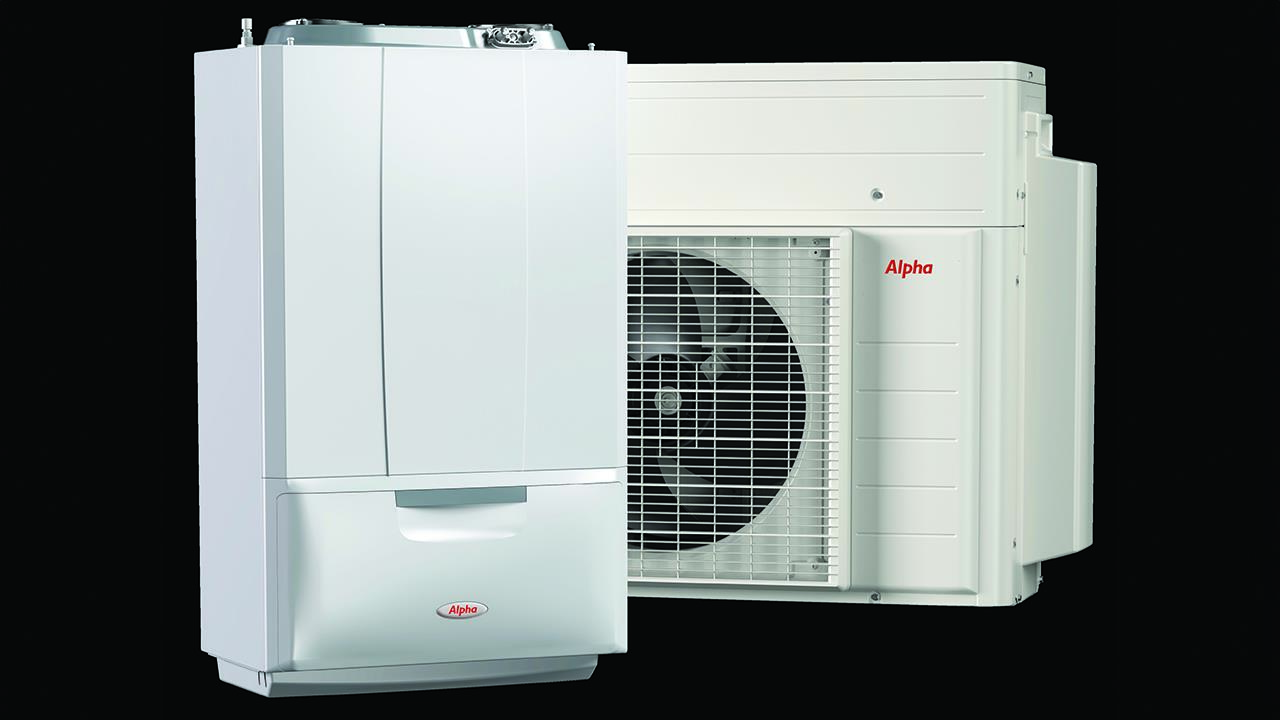

Home heating has become a topic of conversation due to rising energy costs and the government’s aim to transition away from gas boilers. Currently, homeowners are mostly debating between sticking with gas or adopting heat pump systems, but an alternative option deserves their attention – hybrid heating systems.
Combining a smaller heat pump with a conventional gas boiler, offers a ‘third way’ for decarbonising home heating in the UK. They offer lower running costs than gas boilers and are suitable for more homes than heat pump-only solutions.
Hybrid systems combine the advantages of both heat pumps and conventional heating systems. They typically consist of a gas or LPG-fired boiler, a central control unit, pipework for hot water, and a small heat pump. The heat pump, powered by electricity, maintains radiator warmth, adjusting room temperature based on external conditions. If temperatures drop beyond the heat pump’s efficiency point, the boiler seamlessly takes over. The hybrid control system also selects the most cost effective and efficient energy source based on the tariff.
In a recent study we conducted, more than half of a sample of UK householders questioned said they would consider the environment in their choice of heating technology when next replacing their boiler, but 60% said a lack of knowledge or a need for more clarity on government subsidies about more sustainable heat sources complicated the decision process. Almost three-quarters would look to switch from gas, oil, or electric heating for cheaper long-term energy costs.
While hybrid systems have a higher upfront cost than a typical gas boiler, they are considerably more affordable than heat pump-only alternatives for most households, as they retain the gas boiler’s hot water functionality, simplifying the transition.
The nature of the UK’s housing stock also means that heat pump-only options are often not viable because of an inadequate level of insulation. Hybrid system installation is more streamlined, meaning homeowners can typically retrofit hybrid systems onto their existing central heating and plumbing setups without the need to enhance insulation, minimising disruption. They also require minimal additional training for heating engineers accustomed to working with gas-fired heating.
Hybrid systems serve as a bridge to more sustainable heating solutions. They provide a viable alternative for homeowners who want to transition to lower carbon heating and reduce energy bills, while maintaining the reliability and familiarity of gas boilers.
Many homeowners and landlords are interested in moving away from gas but are concerned about the costs associated with heat pumps and ensuring their homes remain warm. Hybrid systems address these concerns, offering a gradual shift towards sustainable home heating. They allow homeowners to enjoy the benefits of lower carbon heating without sacrificing the comfort and convenience they are accustomed to.
As the UK progresses towards phasing out gas boilers and embracing sustainable heating, hybrid systems could play a crucial role. They contribute to achieving the government’s commitments on net-zero by offering an alternative that combines low carbon heating with the reliability of gas boilers. As such, hybrid systems are an intermediate step towards a more sustainable future.
With their affordability, ease of installation, and ability to bridge the transition to net-zero heating sources, hybrid systems represent an important choice for homeowners considering a switch from traditional gas heating.
If you'd like to keep up-to-date with the latest developments in the heating and plumbing industry, why not subscribe to our weekly newsletters? Just click the button below and you can ensure all the latest industry news and new product information lands in your inbox every week.